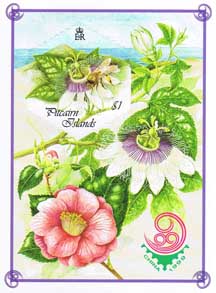On May 29th, the Day of the Honey Bee in Quebec, Équiterre, in collaboration with the David Suzuki Foundation, hosted a public talk presenting the results of the most important literature review on the impacts of neonicotinoïd pesticides, that kill pollinators. The comprehensive assessment of more than 1,000 peer-reviewed reports was conducted by the international Task Force on Systemic Pesticides, an international group of 50 independent scientists. The talk was given by Jean-Marc Bonmatin, researcher at the French National Centre for Scientific Research (CNRS) and Task Force vice-chair, and Madeleine Chagnon, PhD, associate professor at the Department of Biological Sciences at the Université du Québec à Montréal, who also participated to the Task Force. "As a scientist, I can now say conclusively that the evidence of harm is clear and points to the urgent need for action to reduce the quantities of these pesticides entering the environment," said Bonmatin.
The central role of pollinators in food production
Bees and other pollinators play a vital role in food production. They are responsible for 70 per cent of food crop pollination and one-third of what we eat. "Restricting the use of neonics is an important step to preserve and improve our food systems," said Sidney Ribaux, executive director of Équiterre.
"In Quebec, the research shows a mortality rate four times higher for bees in hives located near fields where seeds were treated with neonicotinoids," said Madeleine Chagnon, associate professor in the Université du Québec à Montréal’s Department of Biological Sciences. Chagnon also participated in the literature review and presented research on the impact of neonics in Quebec at today’s event. "This is very worrying and we need to take action quickly," she said.
Used for just about a decade, neonics have become the most widely used class of insecticide in the world, claiming 40 per cent of the global market. In Quebec, almost all grain corn and between 50 and 75 per cent of soybean seeds are treated with neonics — affecting some 600,000 hectares of crops every year. Moreover, bees aren’t the only victims. “Neonic” pesticides may harm the human brain, nervous system and hormonal system.
Canada : An encouraging step forward
On November 25th, the Ontario government became the first government in North America to announce a plan for regulations to restrict the use of seeds treated with neonicotinoid pesticides. Ontario has proposed reducing use of neonics by 80 per cent by 2017. It is an encouraging step forward in the growing movement to save the bees. Please help keep the momentum going by demanding action from the federal government and other provinces.
Sources:
Equiterre, 1 June 2015
http://www.equiterre.org/en/news/take-action-against-pesticides-that-ki…
David Suzuki Foundation, 28 May 2015
http://www.davidsuzuki.org/media/news/2015/05/international-neonicotino…
View the presentations (in French):
https://mdd1.adobeconnect.com/_a1146275134/p6yb6cdauhd?launcher=false&f…

- Log in to post comments

Bonmatin confirms central thesis of book Disaster in the Making
Dear Henk,
Thank you for your nice e-mail.
The reading of the link that you provided about birds is very interesting (including the Jon McCracken Bird Watch Canada.pdf)
Here is a copy of my lecture in Ontario (lecture to MPPs).
I hope you are well and that all your work on these subjects are well acknowledged now.
Best regards,
Jean-Marc Bonmatin
Orleans, 28 June 2015